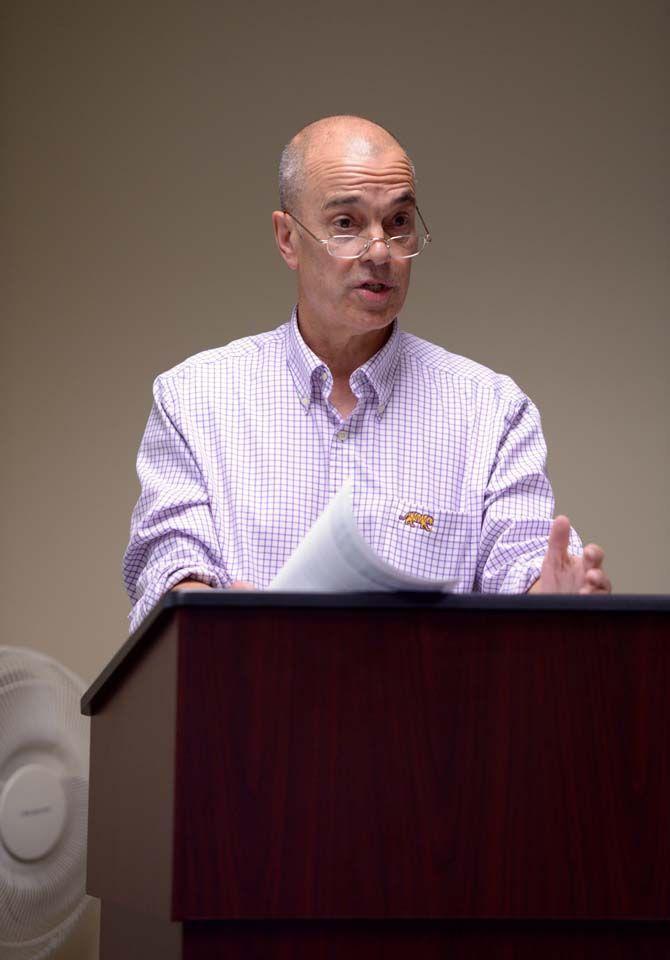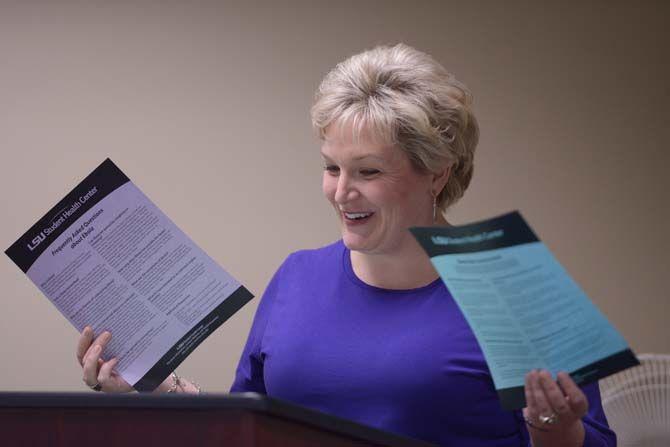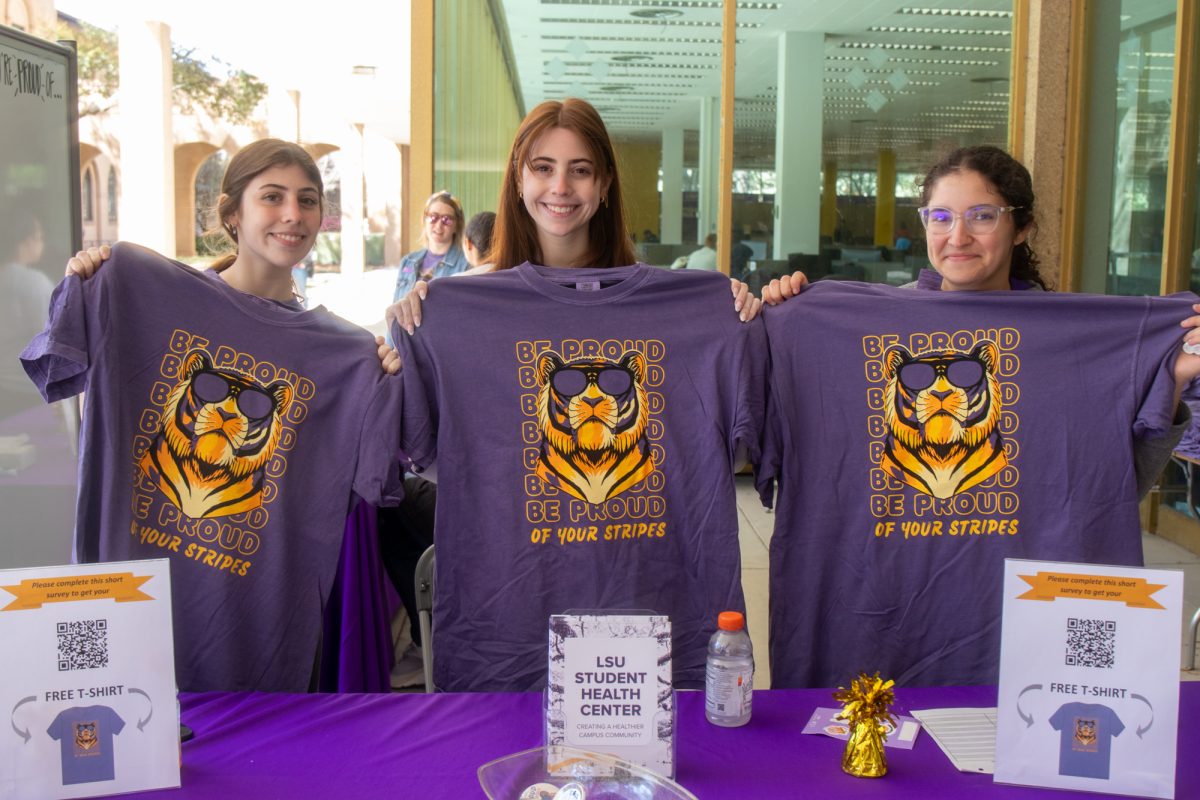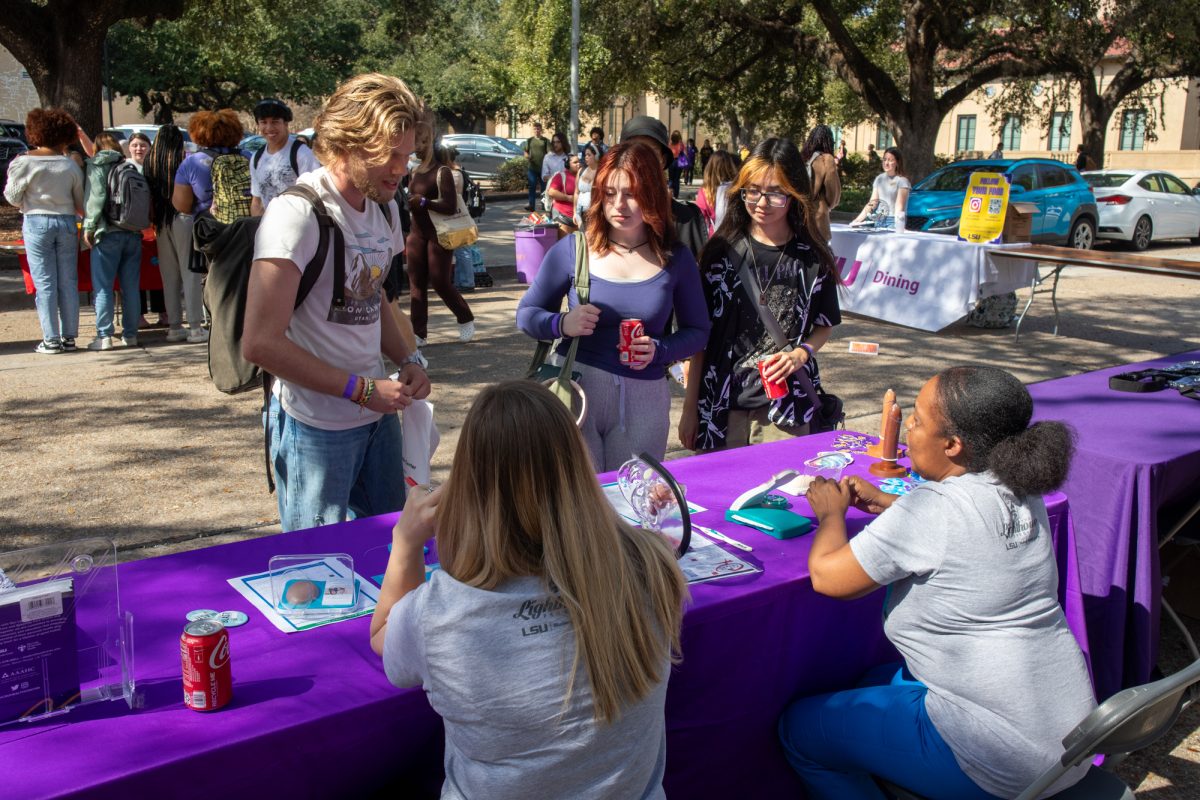LSU President F. King Alexander has set guidelines regarding personal travel by University employees and students to and from Ebola-affected nations.
Permanent Memorandum 13 explains general regulations for travel at University expense in compliance with the World Health Organization’s declaration that the Ebola virus outbreak is now an international public health emergency.
D’Ann Morris, executive director of the Student Health Center, said the provisions are a campus-wide collaboration to make this health initiative as efficient as possible.
“We’re viewing this as a very serious health initiative because this campus is so close knit,” Morris said.
The University has been in communication with all students native to an Ebola-affected area since before the fall semester. The students are updated by the Student Health Center, which asks students to contact the International Student Office should any symptoms or concerns arise. For instance, if a student plans to travel home, and their home country is affected with Ebola, they must contact and work with the University for the health and safety of both the student and the University.
Though the Student Health Center’s chief of medical staff Nelson Perret said categories of risk levels should be considered, Morris said even low-risk students are to be handled with severity.
“We don’t want to ostracize them, but we want them to know their risk factors and resources offered, and the University needs to know what our risk factors are,” Morris said.
Perret said the Student Health Center has strict protocols for handling affected individuals.
“Actions are to be taken based on risk factor,” Perret said.
High-risk factors include exposure to the blood or body fluids of a person with Ebola while the person was symptomatic, while low-risk factors include having been in a country with a widespread Ebola outbreak or brief contact with a person with Ebola while the person was symptomatic.
Perret said if an individual shows concern for the disease, they should call the Student Health Center for an assessment rather than risking contamination of the center by walking in.
Depending on the diagnosis given, the Student Health Center is prepared to arrange transportation to the hospital for appropriate care but is also equipped with the proper protective gear should the need arise.
The Student Health Center already has precautions in place. Should a person carrying the virus walk in and affect others or the environment, the waiting room will go on lockdown. The Student Health Center then can determine who was present and where they were in relation to the affected individual.
The Student Health Center is not the only proactive unit on campus. University Chief of Police Lawrence Rabalais said LSUPD is preparing for all outcomes.
“Typically our responses will be after hours, but our guys are working on training now,” Rabalais said.
Facility Services is also recognizing the call to provide thorough sanitation throughout all of campus, proving the health initiative to be a University-wide collaboration for efficiency.
University employee Jason Krause returned from Liberia in October, completed his quarantine and has not shown reason for concern since.
There have only been two persons in the U.S. who have contracted Ebola outside of Africa since the epidemic began in September.
University sets Ebola epidemic protocols
November 5, 2014
LSU Student Health Center chief of medical staff Nelson Perret, M.D. briefs an audience on the ebola virus, debunking misconceptions and explaining the intricacies of how the disease affects the community at large Wednesday, November 5, 2014 in the Student Health Center.
More to Discover











